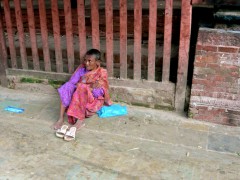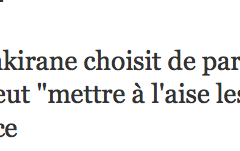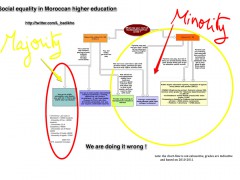-

Transformative Pedagogy in Bhutan
Taking Bhutan as an example, the UN General Assembly recently invited countries “to pursue the elaboration of additional measures that better capture the importance of the pursuit of happiness and well-being in development with a view to guiding their public policies.” The resolution said “the pursuit of happiness is a fundamental […]
Read all posts from ‘Work in the developing world’
-

Not a hand out but a hand up: Australians investing for the future
(Source: G. Lyons, Nepal, 2011) Australia as an industrialised nation demonstrates a governance system that is stable, a growing economy and a rapidly expanding technology infrastructure. However what are Queenslanders and Australian’s as a greater community doing in order to assist nations that are economically struggling and fail to implement […]
-

French Lingua and Social Discrimination in the Moroccan Job Market
As pointed out by the previous post on Young Moroccan graduates, higher education in Morocco does not provide reliable social equality, as the professional future of a graduate will be highly affected by his socioeconomic background. In this post and in the continuity of the previous one, I will present […]
-

Releasing the Workplace Potential of Young Professionals
In the lead article Work in the Developing World Arrianna Marie writes, “[there] must be the right type of jobs, filled by the right type of workers”. I believe the process of sustainability and development has to include one more step in its methodology – which is to provide the right type […]
-

Moroccan Graduates: Jobless PhDs and Lucky Engineers
In her article on Work in the Developing World, Arrianna Marie started with an obvious truth: “The developing world has the potential for major economic growth, but first it must prepare its young people for the burgeoning jobs market“. I underline the second sentence as it is the topic of this […]
